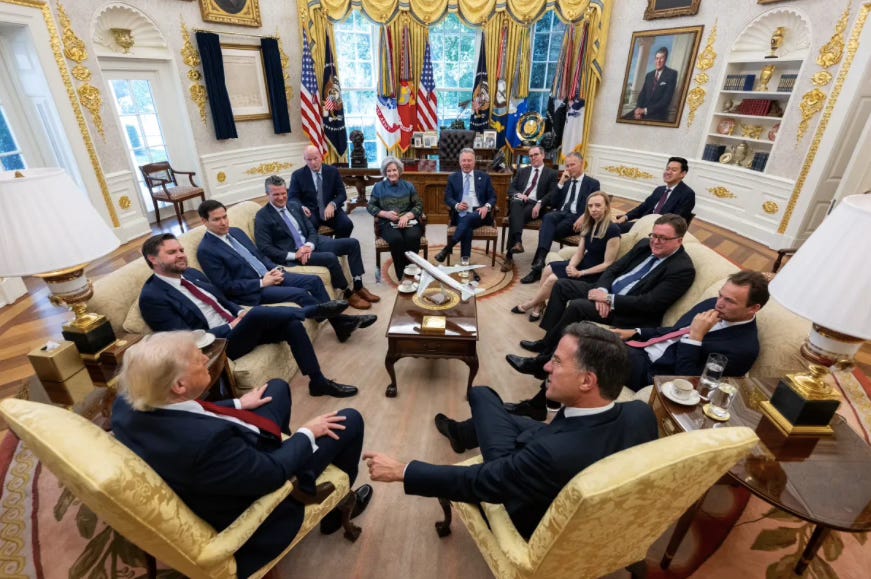Allies Astray
Russian influence is undermining NATO
(Trump and NATO secretary general Mark Rutte, with delegations, in the Oval Office)
NATO was created to deter Russian aggression. By consigning Ukraine and Georgia to a grey zone, allies set conditions for renewed war in Europe. Continuing Russian influence over global media, European energy and NATO politics is still preventing allies from fully committing to defeat Russian aggression.
The North Atlantic Alliance was created in 1949 to deter Soviet aggression. The 1948 Berlin blockade and coup in Czechoslovakia had given Cold War anxieties a sharper edge. NATO galvanized allied solidarity by committing the US, UK and Canada to defend Europe’s democracies. A defensive political-military alliance, NATO aimed to end and eventually reverse Soviet subversion and repression.
For eight decades, these arrangements for collective self-defence worked quite well. Twelve allies joined on April 4th, 1949. Greece, Turkey and West Germany followed in the 1950s, as did Spain in 1982. Czechoslovakia, Poland and Hungary joined in 1999. From 2004 to 2023, twelve more counties were integrated. Just last year Sweden was added, bringing the total number of allies to 32, five more than the EU.
By pledging and preparing to defend one another in case of an attack, allies prevented Soviet aggression against themselves. But they failed to deter Soviet invasion, partition or occupation of non-members. Hungary was invaded in 1956. The Prague Spring was crushed in 1968. After 1980, Soviet leaders issued threats, directed propaganda and exerted psychological pressure against Poland’s Solidarity (Solidarność) movement. Up to 1991, half of Europe was under Soviet occupation.
This aggression did not end with the USSR’s dissolution. Since 1991 Russia has invaded Georgia, Kazakhstan and Ukraine. It maintained military bases in Armenia, Belarus, Kazakhstan, Moldova and Tajikistan. It occupied and sought to partition parts of Georgia, Moldova and Ukraine. To achieve this — and to prevent concerted allied action to defend Georgia or Ukraine in particular — Moscow invested heavily in preventing them from acceding to NATO membership.




